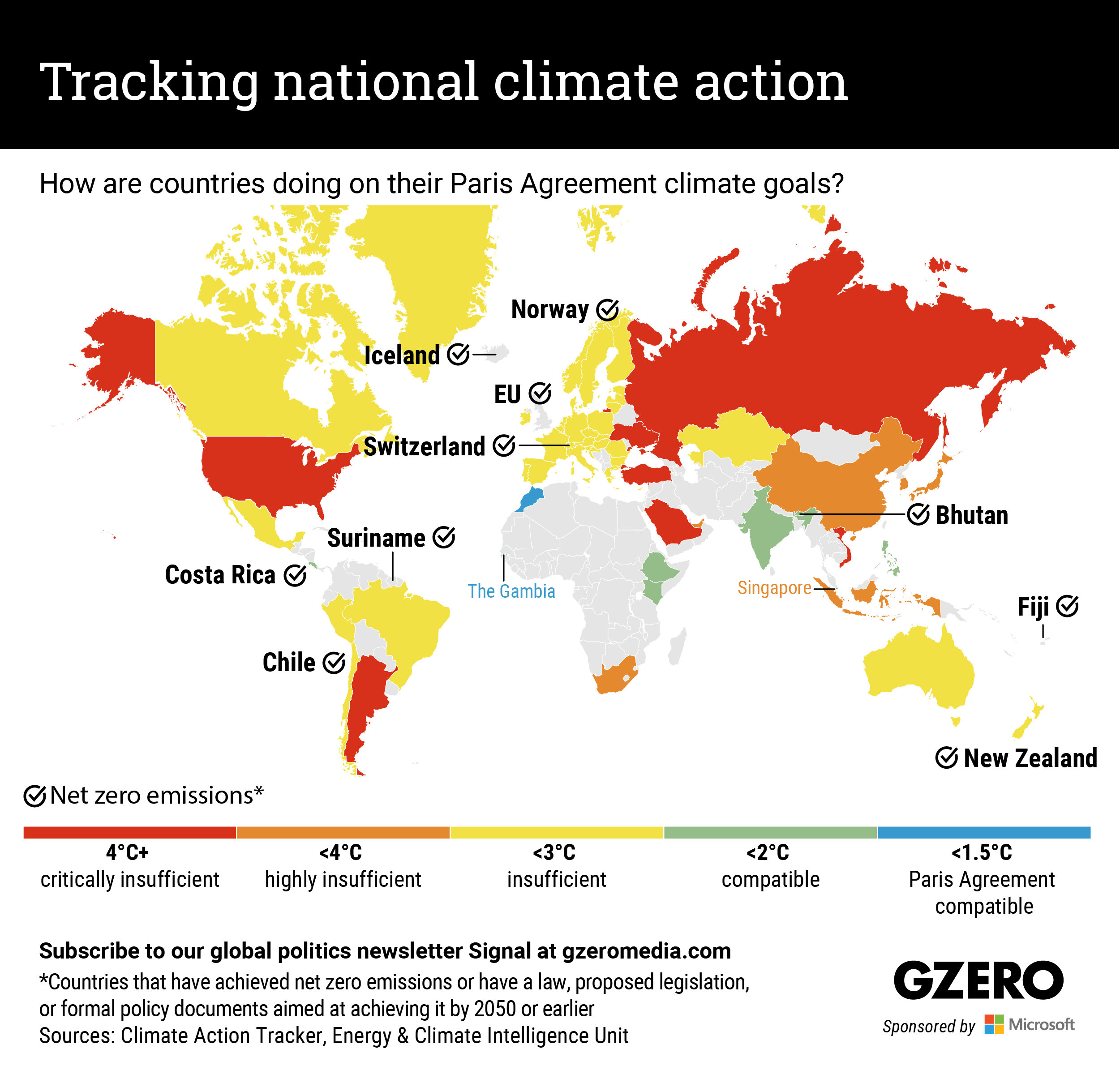The Graphic Truth: Tracking national climate action

Under the terms of the 2015 Paris Agreement, signatory countries agreed to make their own commitments to curb greenhouse gas emissions. At next year's UN climate change conference in Glasgow, nations will assess progress to date and (possibly) make bolder commitments, given technological progress and the mounting urgency to take climate action. But for now, only a handful of countries are on pace to limit warming to 2°C above preindustrial levels — let alone to meet the 1.5°C target that most scientists believe will help us avoid heaviest climate impact. A small group of intrepid governments aim to achieve "net zero" emissions in coming decades. We look at how certain nations are performing on climate action, and highlight those with plans to reach net zero.
















